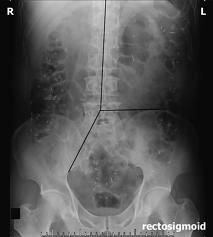
Colonic Transit Time - 2 Weeks After Onset
Use Safe Interferential Therapy on Slow Transit Constipation
A new 2012 report on colorectal disease confirmed what was originally published and reported by Dr. Giovanni DeDomenico in 1987 in his ground breaking work on the use of Inteferential therapy for slow transit constipation. Dr. DeDomenico's work involved the same 2x- 3x per week treatments of the abdominal muscles as the current study indicates. The colonic transit time is enhanced using abdominal stimulation with pre modulated interferential and two electrodes, not four. Four electrodes are used on non pre-modulated units.
The actual protocol involves setting the Infrex portable interferential stimulator to the IF mode, and using a high frequency. Call for more information on exact settings to retard the frequency of slow transit constipation.
We offer a 100% money back guarantee interferential will help relieve your constipation. In some cases the rental or purchase of the Infrex may be covered by your insurance carrier. A prescription is required from a licensed M.D. before we can send you the unit to try.
Here is the abstract on from http://onlinelibrary.wiley.com/doi/10.1111/codi.12052/abstract
I've reprinted the abstract below.
Abstract:
Aim: The study aimed to assess, for the first time, the effectiveness of Interferential Therapy (IFT) in the treatment of slow-transit constipation in adults and its impact on the quality of life.
Method: All consecutive patients with slow-transit constipation diagnosed by symptomology and a colonic transit time (CTT) of >100 hours (h) measured with radiopaque markers were included in this prospective study. IFT was performed for 1 hour per day over 3 months. Clinical improvement was based on the stool diary and the KESS and Cleveland Clinic Constipation scores. Quality of life was assessed with the GIQLI questionnaire.
Results: Eleven patients with a median age of 51 years were included. At the end of the follow-up period, 7 (63.6%) had significantly improved after IFT with a median of 0.66 stools per week (IQR, 0.33-0.66) before treatment and 1.66 (IQR, 1.33-1.66) after (p=0.007). The KESS score rose from 30 (IQR, 27-33) before treatment to 19 (IQR, 17-26) after treatment (15-33) (p=0.005) and the Cleveland Clinic Constipation Score from 26 (IQR, 25-28) to 17 (IQR, 13-24) (p=0.005). The CTT improved from 103 (IQR, 101-113) to 98 (IQR, 94-107) (p=0.02) h. The GIQLI score improved from 60 (IQR, 57-63) to 95 (IQR, 68-100) (p=0.005).
Conclusion: Interferential therapy is a new, non-invasive treatment for slow transit constipation. Further studies to confirm these results with longer follow-up are necessary.
© 2012 The Authors Colorectal Disease © 2012 The Association of Coloproctology of Great Britain and Ireland


